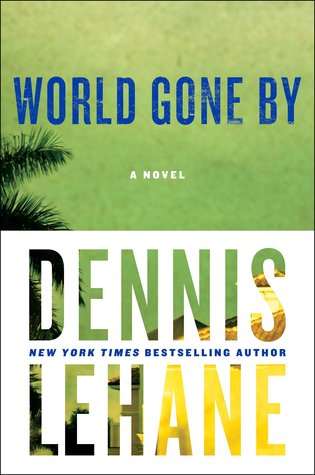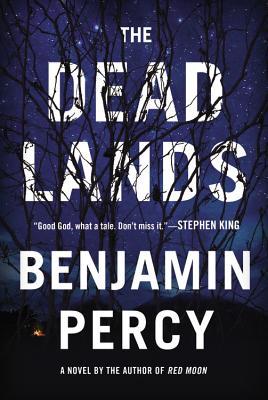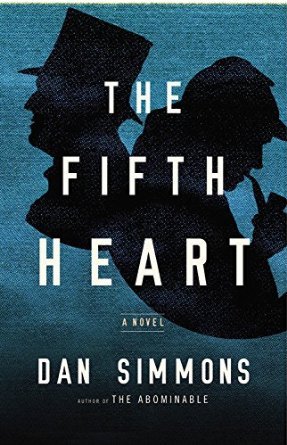 | ||
| Surely this dude could crawl faster after a session with the toenail clippers. |
 Believe it or not, winter's days are numbered. S-l-o-w-l-y, but surely, birds' nests, daffodils, and green leaves are on their way. Spring books are coming, too, and some of them look pretty darn good.
Believe it or not, winter's days are numbered. S-l-o-w-l-y, but surely, birds' nests, daffodils, and green leaves are on their way. Spring books are coming, too, and some of them look pretty darn good.Of course, what one reviewer describes as "riveting" may be another reader's "I just could not get into it." This spring, you ought to find something you like, given the books' wide variety.
 Canadian writer Owen Laukkanen is a terrific storyteller. His series, set in Minnesota's Twin Cities, combines aspects of a police procedural with the pacing of a thriller laying rubber. Typically, chapters alternate between all the major characters' viewpoints, giving the reader a pleasantly head-spinning experience. His cops are an appealing odd couple: Kirk Stevens, a veteran agent of the Bureau of Criminal Apprehension, and Carla Windermere, a hotshot FBI special agent. Stevens is a happily married, middle-aged white guy; Windermere is single, black, gorgeous, and tough.
Canadian writer Owen Laukkanen is a terrific storyteller. His series, set in Minnesota's Twin Cities, combines aspects of a police procedural with the pacing of a thriller laying rubber. Typically, chapters alternate between all the major characters' viewpoints, giving the reader a pleasantly head-spinning experience. His cops are an appealing odd couple: Kirk Stevens, a veteran agent of the Bureau of Criminal Apprehension, and Carla Windermere, a hotshot FBI special agent. Stevens is a happily married, middle-aged white guy; Windermere is single, black, gorgeous, and tough. Given other circumstances, some of Laukkanen's criminals might not have turned to crime; however, they graduated from college in a poor jobs market––but dream of an early retirement in the Maldives (The Professionals). Another unlikely crook over-leveraged himself with a hefty mortgage before he was laid off. Then, he discovers he enjoys the adrenalin rush of robbing banks (Criminal Enterprise). Crime seems to come more naturally to a wealthy capitalist who uses the internet and takes outrageous advantage of dead-eyed "assets" to satisfy the demand for pro killers––although at times running the business is a headache (Kill Fee) (see reviews here, here and here). You can count on Laukkanen for entertaining social criticism along with the hair-raising suspense.
In Laukkanen's fourth book, The Stolen Ones (Putnam, March 17), off-duty deputy sheriff Dale Friesen is killed after he questions a truck driver, and a young Romanian woman named Irina Milosovici escapes from the truck's container. Milosovici, found near Friesen's body, doesn't speak English and has no idea where she is. The missing 18-wheeler contains her sister and other victims of a sex-trafficking operation. While Windermere and Stevens search for the truck and the traffickers, the traffickers search for Milosovici.
Benjamin Percy, now writer in residence at St. Olaf College in Minnesota, is from Eugene, Oregon, and Oregon often appears in his settings. Like Owen Laukkanen, Percy focuses on current social issues. Red Moon (Grand Central, 2013) examines dispossession, marginalization, and terrorism in 21st-century America. The stigmatized and terrorists are lycans, and they are not the explode-into-fur-and-snarling-fangs-under-a-full-moon variety one usually encounters in werewolf fiction. This is an unusual supernatural thriller and alternative history.
A nuclear apocalypse and flu epidemic have decimated the world in Percy's upcoming dystopian novel, The Dead Lands (Grand Central, April 14). The United States has disintegrated, and a group of survivors are living under tyrannical leaders in the Sanctuary near what was once St. Louis, Missouri. A stranger arrives and talks about the land west of the Cascade Mountains, where crops still grow and civilization flourishes. Lewis Meriwether and Wilhemina Clark flee the Sanctuary with a band of followers. They'll recreate the early-19th-century expedition of Lewis and Clark as they travel westward through the continental divide to Oregon. The earlier explorers faced threats in the unknown territory, but surely those threats pale compared to the ones ahead of these travelers: treacherous militias with who-knows-what sort of agenda and creatures that have undergone mutations caused by nuclear fallout. Whoa!
 If you've been planning to read Dennis Lehane's excellent historical novels about Joe Coughlin, now is the time. A movie based on the Edgar Award-winning second book, Live by Night (William Morrow, 2012) (reviewed here), will be out in the fall of 2016. Ben Affleck will write the screenplay, direct, and star as Joe, a police captain's black-sheep son who takes to a life in organized crime. (Oy, I disliked Affleck's Argo, but I will hope for the best. Live by Night should make a great movie, and Affleck could have been worse in Gone Girl.) Joining the Live by Night cast are Sienna Miller as Emma Gould, who two-times her Boston gangster boyfriend with handsome Joe; Elle Fanning as the enigmatic Loretta Figgis, daughter of the Ybor City, Florida, chief of police; and Zoe Saldana as beautiful Graciella Suarez, a pro-Batista Cuban Joe meets in Ybor City.
If you've been planning to read Dennis Lehane's excellent historical novels about Joe Coughlin, now is the time. A movie based on the Edgar Award-winning second book, Live by Night (William Morrow, 2012) (reviewed here), will be out in the fall of 2016. Ben Affleck will write the screenplay, direct, and star as Joe, a police captain's black-sheep son who takes to a life in organized crime. (Oy, I disliked Affleck's Argo, but I will hope for the best. Live by Night should make a great movie, and Affleck could have been worse in Gone Girl.) Joining the Live by Night cast are Sienna Miller as Emma Gould, who two-times her Boston gangster boyfriend with handsome Joe; Elle Fanning as the enigmatic Loretta Figgis, daughter of the Ybor City, Florida, chief of police; and Zoe Saldana as beautiful Graciella Suarez, a pro-Batista Cuban Joe meets in Ybor City.The Joe Coughlin books can be read alone, but to appreciate the characters' development and the arc of the story, they should really be read in order. Lehane deals with themes dear to his heart: fathers and sons, love, revenge and redemption, and the roles fate and luck play in our lives. The first book, The Given Day, features the Irish Roman Catholic family of cop Thomas Coughlin and is set in Boston against a backdrop of World War I, the police strike, political corruption, and a flu epidemic. Live by Night focuses on Joe, baby brother to Danny and Connor, and takes place mostly in Ybor City during Prohibition before the story moves to Cuba. Joe makes a particularly interesting mobster, because he has a set of ethics, although he doesn't feel alive unless he's living on the edge. World Gone By (William Morrow, March 10) begins a decade after the events of Live by Night. Joe has a son and now moves among the rich and powerful in Tampa, Florida; while the violence of his past seems behind him, he travels between Cuba and Tampa, operating behind the scenes as "the fixer for the entire Florida criminal syndicate." It's hard to believe someone won't force him to pay for his sins.
Are you a fan of alternative history, steampunk, science fiction, and fantasy mashups? If you haven't tried one, you should, and Ian Tregillis's The Mechanical (Orbit, March 10), first book in the projected Alchemy Wars trilogy, looks like a good bet for a lot of fun. Tregillis is a Ph.D. physicist and well-respected sci fi/fantasy writer. Publishers Weekly named this book one of its most highly anticipated 2015 novels, and professional reviewing services are showering it with starred reviews. Booklist says, ""The first thing readers will say after finishing this splendid book is: 'Wow.' The second thing will probably be: 'When can I read the next one?'"
The Mechanical postulates a Dutch empire ruled by the Brasswork Throne that defeated the French in the 17th century with an army of sentient mechanical men, powered by alchemy, called Clakkers. Three centuries later, the Netherlands, the world's sole superpower, is at truce with the French. The Clakkers are enslaved by the Dutch, and only New France (in what we call Canada) and small Papal outposts in the New World demand equal human rights for breathing and alchemical men. The tale is told from three points of view: the French spymaster Berenice Charlotte de Mornay-Périgord, Vicomtesse de Laval, at home in Marseilles-in-the-West; one of Berenice's agents, a Catholic priest working undercover in the Hague, Father Luuk Visser; and Jax, a Clakker who longs to be free, in the service of a wealthy Dutch banking family.
We already know Dan Simmons can spin a yarn. Before I tell you about what Simmons says Sherlock Holmes was up to in the years after he and Moriarty disappeared over Reichenbach Falls in Switzerland ("The Final Problem") and before he reappeared in The Hound of the Baskervilles, let's look at a couple of other Simmons novels for a taste of what his characters are in for. Consider, for example, The Abominable, in which George Mallory and Sandy Irvine have vanished on Mt. Everest in 1924, and a year later, three climbers work their way up the mountain to find them. Had this trio known what their creator planned, they would have been a blur as they tobogganed down Everest. Or take The Terror, involving the doomed 1845 Franklin Expedition to find the Northwest Passage. The deadly cold and lack of food and provisions aren't the worst things Simmons has befall the poor men of the HMS Terror.
In Simmons's The Fifth Heart (Little, Brown, March 24), in the absence of Dr. John H. Watson, who do you think plays second fiddle to Holmes? You will never guess. Novelist Henry James. Yes, the man who wrote "The Turn of the Screw," The Golden Bowl, The Ambassadors.... That Henry James. It is now 1893, and James is very depressed. He is about to leap into the Seine, when he chances upon another man on the brink of suicide––Holmes, devastated by the knowledge that he is only "a literary construct." The two men hit it off (how James reconciles Holmes's professed fictional existence and his own reality, I don't know) and travel to America, where they become involved in a political plot featuring President Grover Cleveland, Irene Adler (to Sherlock Holmes, she was always "The Woman"), Henry Adams––and, possibly, Moriarty.
This book sounds much too rich to pass up. I'm a fan of Henry James and Sherlock Holmes. I hear Simmons knows the Sherlockian Canon. (If I could make doves fly out of the page and music swell the air when you read that word "Canon," I would.) The Fifth Heart (624 pages!) looks like a doozy, perfect to tuck into your bag for pulling out and reading chunk by chunk while on Easter vacation.




No comments:
Post a Comment